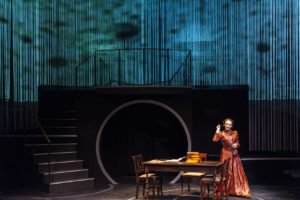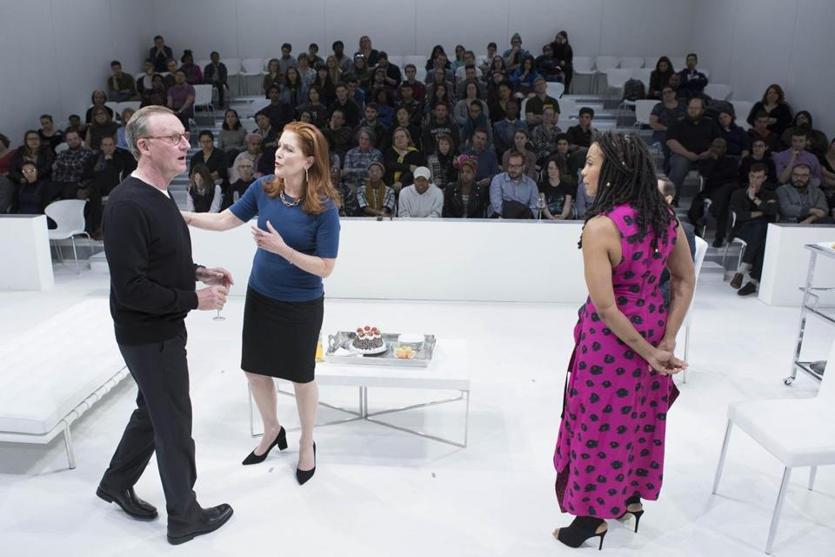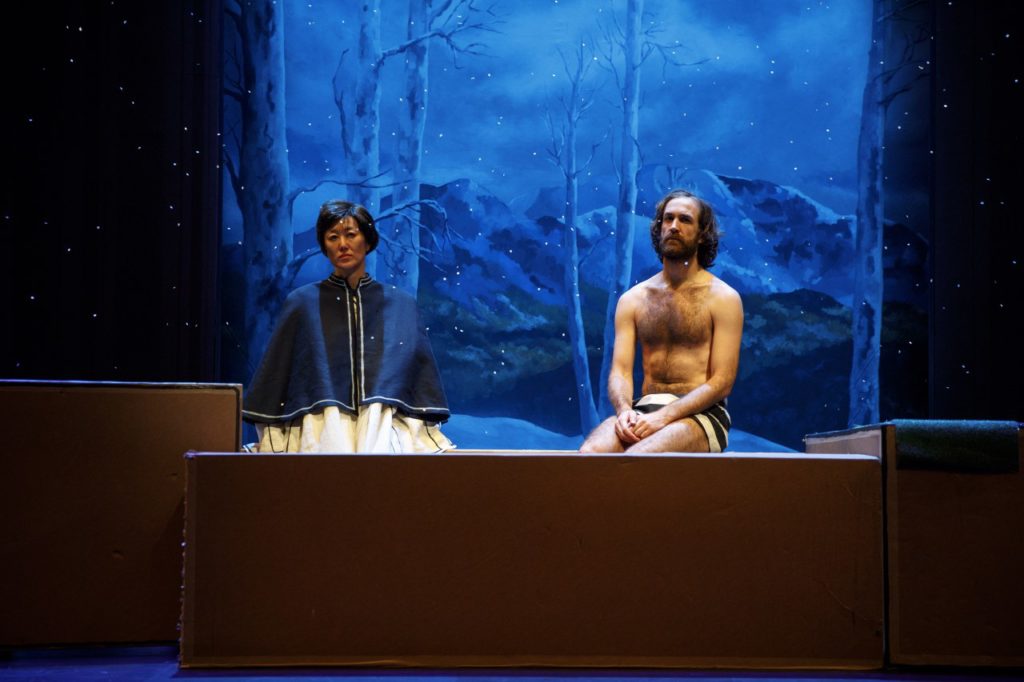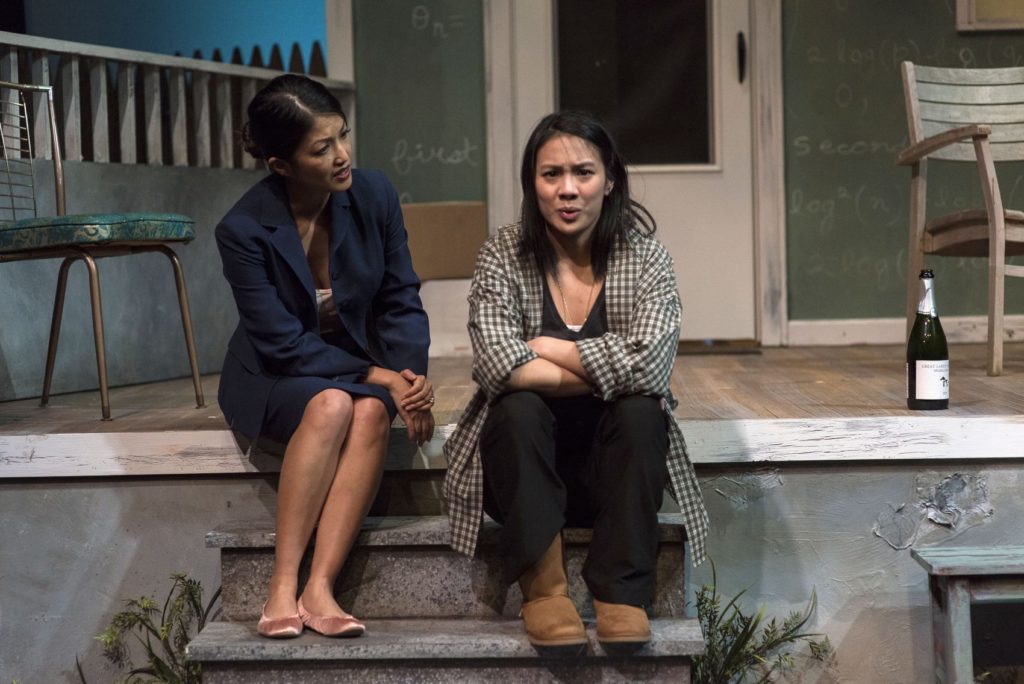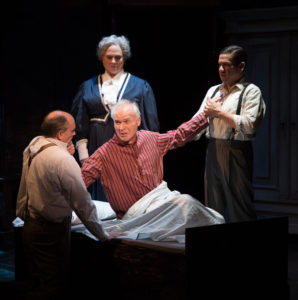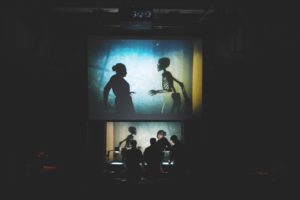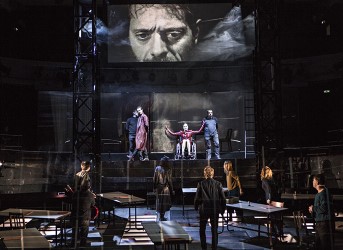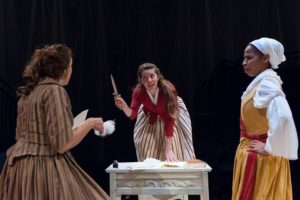Jagged Little Pill Finds a New Life
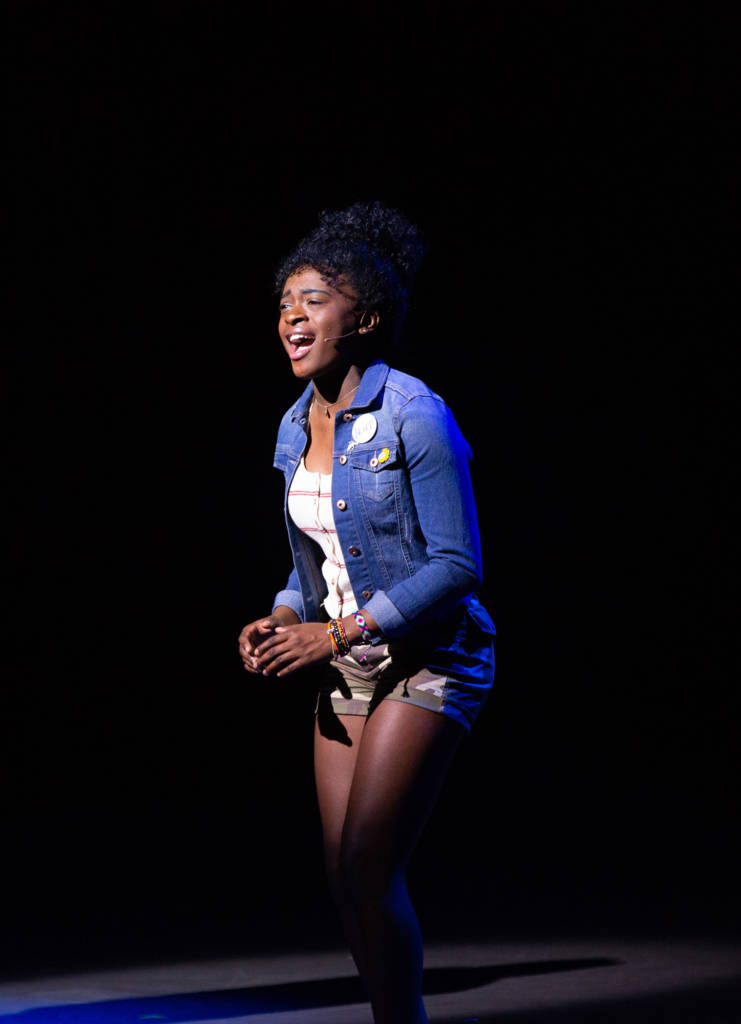
“Jagged Little Pill,” Alanis Morissette’s internationally famous alt-rock album released in 1995 has been turned into exciting musical theatre with two new songs composed for it. Imaginatively directed by the American Repertory Theatre’s Diane Paulus and stunningly choreographed by Sidi Larbi Cherkaoui, the performers sing, dance, and act with skill. At the opening, two bands roll on stage. A thirteen person chorus sings and dances to the music before pulling a screen open exposing the Healy living room. This chorus functions much like its ancient Greek predecessor.
The book written by Diablo Cody revolves around the Healys, an affluent family living in a wealthy suburb in Connecticut. Each family member has a secret. Mary Jane (Elizabeth Stanley), a stay at home mother, is writing a Christmas letter in which she explains that she had a bad automobile accident followed by two operations, but is now fully recovered – a lie. Her husband Steve (Sean Allan Krill), involved with his work life, is seldom at home. …
